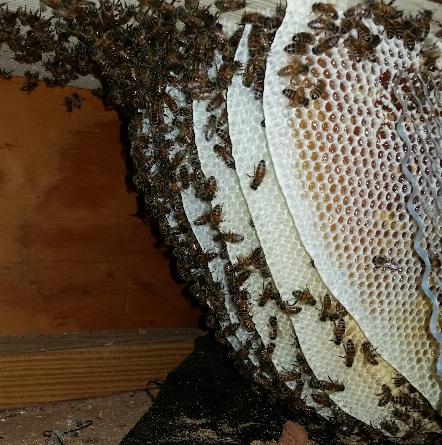An Overview of the Foundational Skills and Knowledge Needed to Begin Beekeeping Successfully and Enjoyably
Beekeeping is a popular hobby because it combines the outdoors with a satisfying experience: taking care of one’s own colony of bees. Another perk of raising bees is a steady supply of honey that you can harvest right from your own backyard garden. The bees will happily help you out by pollinating your flowers and making your garden more productive.
A beekeeping suit, beekeeping hat, and veil are all necessary pieces of equipment before you can even think about getting a hive and bees. You’ll also need to know how to maintain honeybee colonies alive from one season to the next; each colony may have anywhere from 30,000 to 50,000 bees, so they need regular care to thrive.
In this post, we provide beginning beekeepers with actionable advice for achieving their goals:
First, soak in as much information as possible.
Learning about beekeeping may be done in a number of ways, including via self-study, online resources, and seminars taught by knowledgeable beekeepers. The goal here is to acquire knowledge about the various hives and equipment that may be used, the best ways to acquire bees, and the most effective methods of management throughout the year. Acquiring knowledge about beekeeping might help you become ready for the endeavor.
Method Two: Finding a Proper Hive and Home
If you’re interested in keeping bees as a hobby, you’ll need to choose a hive. Think about where on your property you want to put the hive, how much it will cost, what kind of upkeep it will need, and how often you will need to gather honey before making a final decision. The standard beehive consists of a bottom, the hive body, and a cover.
The hive has to be set up on a level, stable surface that is protected from high winds. Keep in mind that bees like the early morning and late afternoon shadiness. Do not locate the hive next to a busy street or in a noisy area.
Step Two: Buy “The Bees”
Packages of bees typically include 10,000 insects in a small box with a screen; the queen bee may be housed elsewhere. The bees may also be acquired as a nucleus colony, which consists of a queen bee that is ready to start producing eggs and five comb frames. The bees in a nucleus colony might be up to six months ahead of schedule in terms of their development.
A nucleus colony, which is much simpler to manage for rookie beekeepers, is a good option for novice beekeepers looking for actionable assistance. The colony can be more quickly relocated, and the queen bee needs less time to start producing eggs. You’ll need to figure out a way to trap the bees while they’re on the prowl if you don’t want to spend money buying them.
Bees may be ordered in January and received in the spring; after three or four months of giving them water and sugar, they will become more prolific, build a wax comb, and start laying eggs, according to experts. If everything goes as planned, you’ll have a good honey harvest in the autumn, and your bees will be strong enough to make it through the colder months.
Equipment Maintenance and Repairs, Number Three
Once you have the bees and have put them in their hives, you will need to provide them with water and food and monitor their hives often to ensure their health. For instance, does the queen bee continue to lay eggs regularly? The average queen may lay between 500 and 1500 eggs each day.
They also need a spotless environment free of pests and other potential dangers. Bees are very delicate creatures, so please handle them with care. Take care to leave enough honey for the bees before harvesting it.
Gathering honey calls for the following tools and supplies:
To avoid being stung, use gloves and a veil for protection.
-A smoker to disperse the bees so that you may quietly collect honey or do routine maintenance.
-A tool for the hive that may enter the hive and aid in rearranging the frames.
You Can Keep Many Different Types of Bees
The following species of bees are on sale:
-Carniolans are known for their generosity; -Buckfasts are renowned as some of the best beekeepers; -Italians are useful in the field of beekeeping, too.
Conclusion
Beekeeping, contrary to widespread opinion, is not a financially draining pastime. Instead, it might be rewarding and fun, particularly if the beekeeper is well-prepared and enthusiastic about their work. However, if things don’t go as planned, you can always call in professional beekeepers to get rid of the problem.
